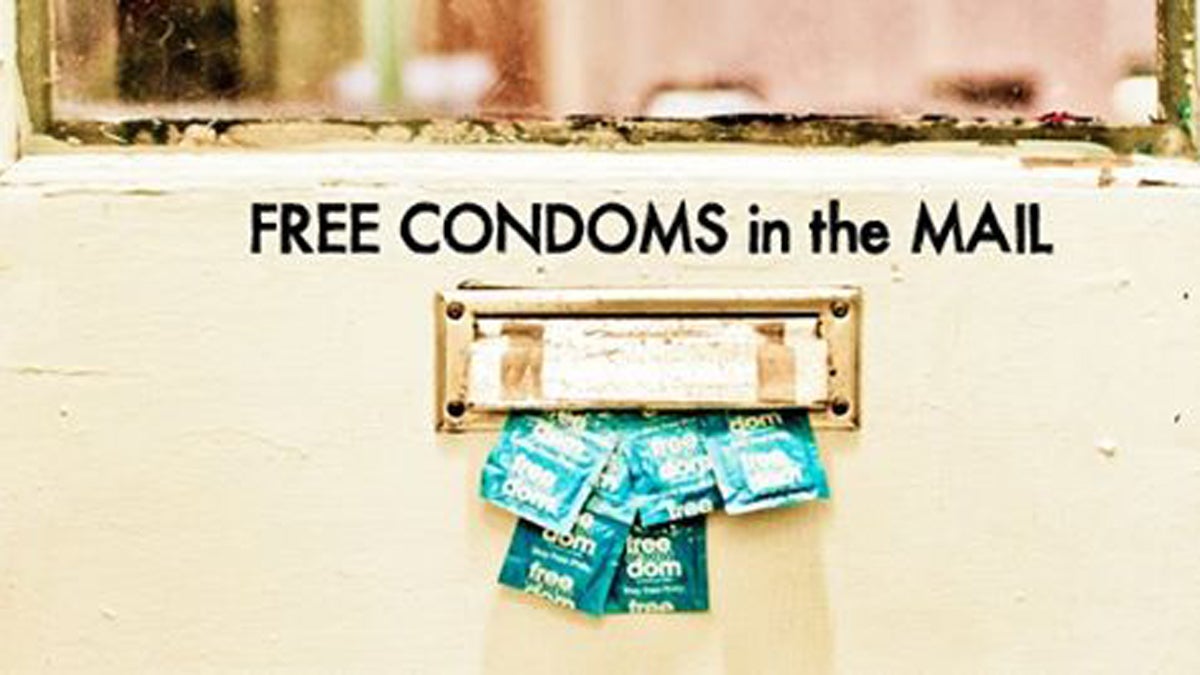Free condom campaign helps reverse rising teen STD rates in Philadelphia

Philadelphia’s historically high rate of sexually-transmitted diseases among teens appears to be on the decline. The Philadelphia Department of Public Health recently noted a 10 to 20 percent decrease in total cases of chlamydia and gonorrhea since 2011, based on internal numbers.
While city health officials can’t take all of the credit, they think that Take Control Philly, a Philadelphia Department of Public Health’s initiative launched in 2011, has played a key role.
The campaign gives teens the opportunity to order condoms by mail, confidentially, and also drastically expanded the department’s condom distribution network.
The engine behind this campaign? Social media. Matt Prior, who oversees Take Control Philly, said Facebook advertising and cheeky campaigns have been a crucial for reaching teens.
“We ran a series of worst Valentine’s ever, such as genital warts saying ‘I’m stuck on you,’ and we actually saw a big response from that. People seemed to enjoy something more light hearted,” said Prior. That campaign also led to a sustained bump up in the number of young women ordering condoms through the mail, from 30 percent to 38 percent.
Mail order condom requests would spike after the Facebook ads ran, said Prior. “So in three steps from seeing an ad or seeing a post, they can hit three buttons, enter some information, and they’re getting condoms in their hands. We mailed over 150,000 condoms that way.”
To date, Take Control Philly has given out over 7.5 million condoms via mail, at events and through 180 distribution sites around the city.
From clicks to condoms
According to a Pew research study, 63 percent of Facebook users check the site at least once a day, with 40 percent checking in more than once.
All of this engagement can be leveraged for public health interventions, if public institutions can capture teens’ attention.
“One approach that has been effective in the past is linking activities, messages, on social media platforms to services and supports,” said Drexel public health professor Philip Massey. “Take Control Philly is really good at that.”
Another benefit to social media-based health campaigns?
“Interventions that leverage new media are able to reach traditionally hard-to-reach and more vulnerable populations.” said Massey. “Youth of minority populations are much more likely to access the Internet wirelessly than non-minority youth populations.”
While current numbers show that rates of STDs among teens are no longer steadily rising — as was the case from 2008 to 2011 — Philadelphia has a long way to go.
According to the Philadelphia Department of Public Health, teens in philadelphia contract common STDs at around three times the national average. In a 2012 survey, less than two-thirds of teens reported using condoms in their last sexual encounter.
WHYY is your source for fact-based, in-depth journalism and information. As a nonprofit organization, we rely on financial support from readers like you. Please give today.

